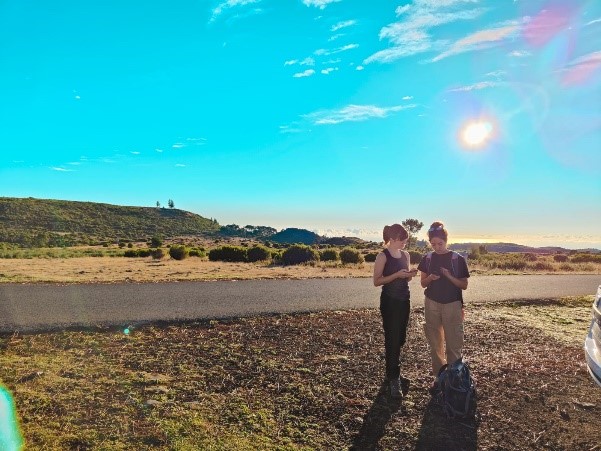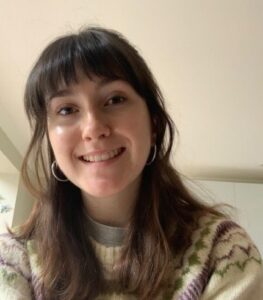University of Oxford
11a Mansfield Rd
OX1 3SZ
UK
Edie Abrahams
Background
Research Interests
Throughout my degree and for my current MBiol project at Oxford, I have been interested in the ecology of invasive species and how they may be perceived from a social science perspective. Invasive species are the second most important cause of biodiversity loss after habitat destruction and fragmentation- yet can be controversial with regards to people’s attitudes towards them. I find this area to hold much potential for future research, as ecological data has historically been lacking for some species and in some areas. I am excited by the links such research would have with environmental policy, as gathering data on previously understudied introduced species can promote policy changes and protect threatened biodiversity. This study area also links to wider research surrounding the public’s relationship with native and non-native species, which I believe can have great power in informing support for conservation practices and interventions. It may be that significant reductions in invasive-caused biodiversity loss are only possible with this kind of support, so effective science communication concerning these issues is vital.
Current Research

In September 2023 I went to Madeira Island (Portugal) to work with the Ecological Park of Funchal, setting camera traps across the park to investigate the density and distribution of free-ranging cats. Cats have been historically under-appreciated as agents of environmental change, so my research aims to make some of the first temporal comparisons of cat ecology in this area. Island ecosystems are particularly vulnerable to biodiversity loss caused by cats, due to high levels of island endemism and species’ vulnerability to predation. In Madeira, free-ranging cats represent the apex predator and can therefore inflict significant damage on native and threatened fauna. The trophic interactions between different invasive species can be unpredictable and complex, generating a need for further scientific studies to identify different interactions and their drivers. Cats will often kill without consuming their prey, an activity termed “surplus killing”. This can lead to devastating losses in seabird populations, whose life history characteristics, (such as only producing one chick a year for some species) can make it difficult to recover from such predation events. Any data on how cat numbers and spatial usage are changing through time could serve to fuel changes in policy and reduce biodiversity losses induced by cats, preserving endemic and threatened species in island ecosystems. For Madeira, the Zino’s Petrel and Manx Shearwater are of high conservation priority for these reasons.
Brief CV
Intern for The People’s Countryside Podcast (December 2021)
Volunteering with Butterfly Conservation (April-July 2019)
Other Experience
Junior Editor – Environment Section for the Oxford Blue (2023)
Volunteer – OxUnboxed as part of Oxford Hub (2022)
Member of Oxford Climate Justice Campaign (OCJC) (2021-2022)

